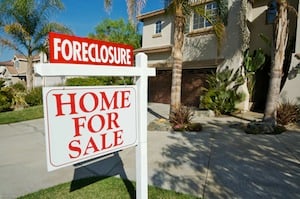Flipping a house is a very profitable endeavor if you know what you are doing. As with most highly lucrative opportunities, it is also risky. Being well-informed is the best way to ensure success. One wrong decision can lead to a break even situation, or worse, leave you with a loss. Here are a few surefire ways for your fix and flip project to fail.
Ken Meyer
Recent Posts
Both first time and experience home flippers, can find useful information on the internet, but where to look? If you start with a search engine, who knows where you will end up? Go ahead and try it. Type in "house flipping" and see what happens. Something like thirty-three million results. How do you sift through all that? For those who are seeking advice, tips, and tricks for the do-it-yourself home flip, here are three of the best house flipping blogs to lend you a helping hand.
There is a sense of urgency with hard money loans. For whatever reason, such as an interruption of funding or a quick take down of cheap property, a hard money loan usually needs to be acquired quickly. It is important to help a lender feel comfortable and to help a lendee receive funds as soon as possible. To do that, here is the ultimate checklist for you and your hard money lender.
Before you invest in a new project, you will need to know these 3 things regarding fix and flip financing. Before you begin, it is important to inspect the property thoroughly. You will also need to get a clear idea on how much the property is worth, the cost of fixing the property, and how much you can realistically sell the property for.
Sell Now, Sell in a Few Years, Refinance: Which Option is Right for You?
Posted by Ken Meyer on Tue, May 12, 2015Deciding what to do with a property that you've acquired can be difficult, especially if the market in your area is uncertain. You've bought your property as an investment, and likely put quite a bit of work (and money) into renovating it. Sell now, sell in a few years, refinance: which option is right for you?
In an uncertain economy, it's easy to find homes that have been foreclosed, sold at rock bottom prices to help cover other debts, or homes that have been left sitting empty and untended for so long that they now need a little bit of help to become a livable property. Read our five criteria for identifying a profitable rehab property to determine whether or not this is a venture that could be successful for you.
Quick Hard Money Loans vs Bridge Loans: Major Differences and Similarities
Posted by Ken Meyer on Tue, Apr 28, 2015What Are Bridge and Hard Money Loans?
A hard money loan is an alternative to a conventional loan where private funding is secured by the value of a property. Therefore, it can be obtained relatively quickly.
4 Real Estate Investment Tools Every Real Estate Professional Should be Using
Posted by Ken Meyer on Tue, Apr 21, 2015Realistically, there are more than four tools to building and boosting your business, however, these are the ones we will currently be focusing on. From finding the right property for your goals, to making certain that your business gets the public's attention, these tools can make a genuine impact. Wholesale buyers, Rehab Flippers or Rental Investors should consider putting these practices in place. Whether you are new to the profession and just getting started, or are a veteran, these concepts should be part of your personal portfolio.
Foreclosures: How They Work and What That Means for You as an Investor
Posted by Ken Meyer on Tue, Apr 14, 2015Foreclosures are common events in American society. During the middle of the 2007 financial crisis, the number of foreclosures skyrocketed since many people were no longer able to make their monthly payments. This eventually resulted in lower housing rates because property owners were trying to boost demand for their assets. From an investor’s perspective, foreclosures are viewed as good real estate deals. Indeed, most investors imagine themselves buying houses in excellent condition at a discount from distressed sellers, and then reselling them at a profit. Yet, things rarely go according to plan. This blog is about foreclosures - how they work and what that means for you as an investor.
A statistic published by the National Association of Realtors (NAR) confirms the fact that the available existing housing market is not booming. In fact, the market was losing momentum as 2014 closed. Cash sales, mainly investors, only comprised 25% of the total sales in November. This was down 27% from October. The median housing price was near $200,000 and climbing. Investors were watching for a cost decline that could drive down prices on their existing properties. It didn't materialize. At a minimum that prevented immediate losses to existing holdings.




















